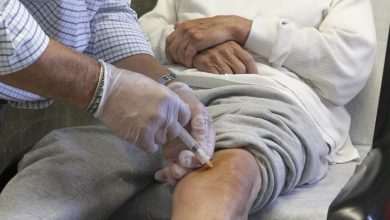
Nursing homes face numerous challenges in providing quality care while maintaining efficient operations. As demands grow and regulatory requirements increase, it’s essential for these facilities to streamline their processes. Optimizing operations can significantly enhance care delivery and resident satisfaction while also improving staff morale and reducing turnover. One of the most effective ways to enhance efficiency is by optimizing staffing. With the right HR strategies and operational adjustments, nursing homes can create an environment that benefits both residents and staff.
In this article, we’ll explore how nursing homes can transform their operations to achieve better outcomes through effective staffing, human resources practices, and efficient management.
Here’s what you need to know:
The Importance of Operational Efficiency in Nursing Homes
Operational efficiency in nursing homes is about more than saving time. It’s about delivering the best possible care while managing resources effectively. Streamlining processes reduces administrative burdens, allowing staff to focus on residents’ needs. Efficient operations lower the risk of errors, enhance communication, and promote a positive work environment. It also helps with budgeting by identifying areas where costs can be minimized. By simplifying and automating routine tasks, facilities can allocate more time to patient care and enhance the overall experience. Ultimately, operational efficiency benefits residents and staff, making the nursing home a better place for everyone involved.
Optimizing Staffing with HR Consultancy Services
HR consultancy services are crucial in optimizing staffing practices within nursing homes. These services specialize in improving recruitment processes, ensuring the right people are hired for the right roles. HR consultants also assist with retention strategies to reduce turnover, a common issue in the healthcare industry. They provide expertise in performance management and training, ensuring that staff members are continuously developing their skills and are equipped to handle the demands of the job. By streamlining care home HR fundamentals, these services help create a more efficient and effective workforce. This leads to a reduced workload for existing staff and ensures better care delivery. HR consultancy services ensure that facilities can meet staffing needs while maintaining high operational standards.
Emphasizing Employee Training for Consistent Care
Employee training is key to delivering consistent, high-quality care in nursing homes. Regular training programs keep staff updated on new regulations, best practices, and technologies that improve service delivery. Specialized training in areas such as emergency response, patient mobility, and care protocols ensures that staff are equipped to manage complex situations effectively. By investing in training, nursing homes improve the quality of care provided, enhance patient safety, and boost staff confidence. Also, well-trained employees are more likely to feel valued, which helps with retention. Continuous training fosters a culture of excellence and empowers staff to perform their roles with confidence and competence.
Implementing Technology to Streamline Operations
Technology is a powerful tool for streamlining operations in nursing homes. Electronic Health Records (EHR) and scheduling software can automate many routine tasks, allowing staff to focus on patient care rather than administrative work. These systems ensure that vital patient information is easily accessible and up-to-date, improving communication among staff and reducing errors. Also, technology can help with resource management, such as tracking medical supplies or scheduling maintenance tasks. Innovations like telemedicine enable remote consultations, providing quicker access to specialists and reducing the need for resident transport. By integrating technology, nursing homes can improve efficiency and reduce operational costs while maintaining high standards of care.
Improving Communication Across Teams
Effective communication is essential for smooth operations in nursing homes. Clear communication between staff members ensures that information is shared efficiently, reducing the risk of errors and improving teamwork. Regular meetings, whether in person or through digital platforms, allow staff to discuss updates, challenges, and care strategies. Utilizing communication tools, such as mobile apps or dedicated healthcare platforms, ensures that information is securely transmitted in real time. A strong communication system ensures that staff members are always informed, reducing misunderstandings and promoting a collaborative environment. This creates a more cohesive team, improving workflow and the overall quality of care for residents.
Enhancing Patient Care Through Care Plan Optimization
Optimizing care plans is crucial for delivering individualized and consistent care in nursing homes. A well-structured care plan outlines specific goals for each resident, focusing on their unique needs, preferences, and health conditions. Streamlining the care planning process ensures that these plans are regularly updated, easily accessible to all staff, and aligned with best practices. This approach allows caregivers to provide tailored care, improving patient satisfaction and health outcomes. Simplifying care plans also reduces the risk of errors, ensures consistency across shifts, and improves communication between staff members. When care plans are optimized, residents receive more focused, personalized care, leading to better overall experiences.
Managing Compliance and Regulatory Requirements
Nursing homes must comply with a wide range of regulations and standards, which can often feel overwhelming. Staying on top of these compliance requirements is essential for avoiding penalties and maintaining operational integrity. Streamlining compliance processes helps ensure that all necessary documentation is accurate, up-to-date, and readily accessible for inspections and audits. By utilizing specialized software, nursing homes can automate record-keeping and ensure compliance with regulations such as HIPAA, safety protocols, and licensing standards. With these systems in place, facilities can focus on providing excellent care while maintaining regulatory adherence without unnecessary stress or disruption to daily operations.
Building a Positive Work Culture for Staff
Creating a positive work culture in nursing homes directly impacts staff satisfaction and retention. When staff members feel supported, valued, and respected, they are more likely to stay and perform at their best. Fostering an environment of open communication, recognition, and professional growth helps reduce turnover and increases employee morale. Encouraging team-building activities and offering regular feedback ensures that staff feel engaged and motivated. A strong work culture leads to greater collaboration among teams, better communication, and a more harmonious environment, which ultimately benefits the residents. By prioritizing staff well-being and job satisfaction, nursing homes can create a thriving, supportive workplace that promotes high-quality care.
Streamlining operations in nursing homes is an ongoing effort that requires careful attention to staffing, training, communication, and technology. By optimizing HR practices, focusing on staff engagement, and implementing the right tools and processes, nursing homes can enhance operational efficiency while maintaining high-quality care for residents. The importance of optimizing care plans, managing compliance, and creating a positive work culture cannot be overstated.
Ultimately, revolutionizing operations in nursing homes not only improves outcomes for residents but also creates a healthier, more productive work environment for staff. As nursing homes continue to embrace these strategies, they will be better equipped to navigate the challenges of an evolving healthcare landscape while ensuring the highest standard of care.



